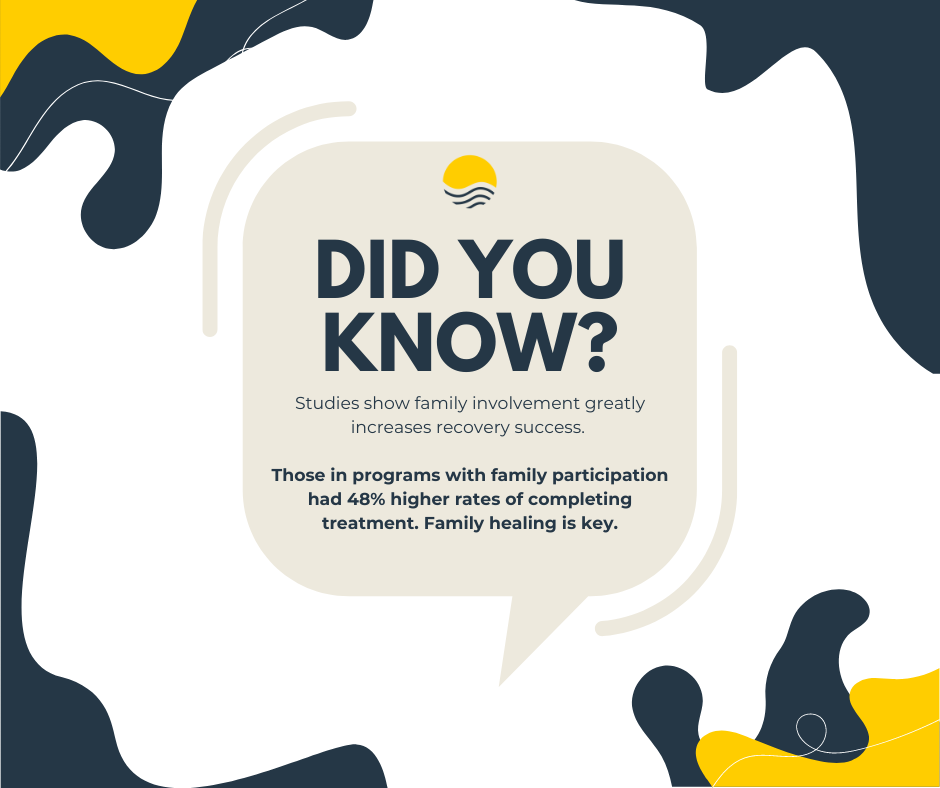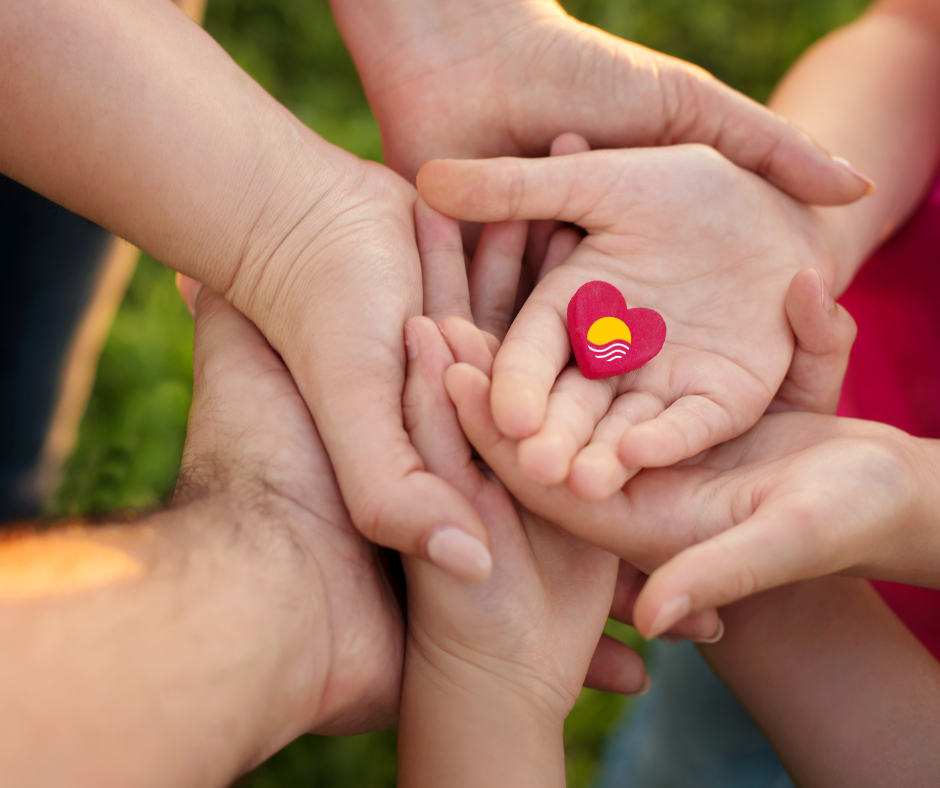Your family is the most important part of your life. When addiction strikes, it hurts everyone you love. Recovery can seem impossible, but together your family has the power to heal. This journey will challenge you, but each small step brings you closer as a family. Listen with compassion, speak truths with love. Forgiveness paves the road ahead. Support each other. Cry together. Laugh together. You are still a family. With patience and trust, your home can be filled with happiness once more. Each amends made is progress. Stay strong and believe in the family you are meant to be. Your love will light the way.
Understanding Addiction as a Family Disease
A Systemic Issue
Addiction profoundly impacts the entire family system. It’s not just the addict who suffers – loved ones are deeply affected too. The disease of addiction creates dysfunction, chaos and trauma that ripples through households.
Codependency Cycles
Families often get caught in cycles of codependency. They may enable the addict’s behavior by rescuing them from consequences. Or they become hyper-vigilant, obsessing over the addict’s every move. These dysfunctional patterns reinforce the addiction and prevent healing.
Healing as a Unit
Recovery cannot occur in isolation. The whole family must heal together by:
- Attending counseling or support groups
- Learning about addiction as a brain disease
- Repairing strained relationships
- Developing healthy boundaries and communication
Recovering families emerge stronger by confronting addiction’s impacts head-on. With professional support, they can break destructive cycles and regain their wholeness.
Supporting Your Loved One in Recovery
Show Compassion and Empathy
Recovery is an ongoing journey filled with ups and downs. Being compassionate and empathetic can go a long way in supporting your loved one through this process. Avoid judgment and criticism. Instead, listen without preaching or giving unsolicited advice. Understand that relapses may occur and are part of the recovery process.
Educate Yourself
Take time to learn about addiction and the recovery process. Understanding what your loved one is going through can help you provide better support. Attend counseling sessions, join support groups for families, or read books on the subject. The more knowledge you have, the better equipped you’ll be.
Encourage Healthy Activities
Engage your loved one in positive activities that promote physical and mental well-being. Exercise, artistic pursuits, nature walks, and other hobbies can be therapeutic. Spending quality time together and creating new healthy experiences can strengthen your bond while aiding their recovery.
Celebrate Milestones
Recovery is a series of small victories. Recognize and celebrate each achievement, no matter how minor. This positive reinforcement can motivate your loved one to keep pushing forward. Simple gestures like a congratulatory card, a special meal, or a heartfelt conversation can mean the world.
Joining a Family Program for Sober Support
A Supportive Environment
A family program offers a compassionate setting to learn about addiction and recovery as a unit. You’ll gain insights into your loved one’s struggles and how to provide healthy support during this challenging transition. With open discussions and guidance from counselors, families can start healing together.
Skills for Lasting Sobriety
These programs teach effective communication strategies and boundary-setting techniques. You’ll discover ways to encourage accountability while prioritizing self-care. By rebuilding trust through activities and counseling, families develop the tools for maintaining long-term sobriety after treatment.
A United Front
Overcoming addiction impacts the entire family system. A comprehensive program empowers you to move forward in unison, processing emotions and celebrating milestones as a team. This unified approach reinforces your commitment to each other’s well being throughout the recovery journey.
Relapse Prevention Through Family Therapy
Understanding Family Dynamics
During addiction recovery, family therapy helps uncover underlying issues contributing to substance abuse. Therapists guide open discussions to identify dysfunctional patterns, resolve conflicts, and rebuild trust. This creates a supportive environment for sustained sobriety.
Relapse Triggers & Prevention
Family members learn to recognize relapse triggers and develop coping strategies together. They practice communication skills to address high-risk situations constructively. Setting clear boundaries while expressing care reinforces sobriety as a shared goal.
Rebuilding Connections
Family therapy mends strained relationships impacted by addiction. By processing resentments, hurt, and enabling behaviors through different therapies such as, EMDR, Dialectical Behavioral Therapy (DBT), Cognitive Behavioral Therapy (CBT), families can release emotional burdens. As they heal wounds together, stronger bonds emerge based on honesty and accountability – key relapse deterrents.
Holistic Healing for the Whole Family
Family Therapy Sessions
Family therapy is an important part of holistic addiction recovery. These sessions allow loved ones to understand the disease, repair damaged relationships, and build a strong support system. Through open communication and counseling, families can heal together.
Mind-Body Wellness
A holistic approach also focuses on overall mind-body wellness. Activities like yoga, meditation, massage, and acupuncture can reduce stress and promote healing for everyone involved. Nutrition counseling empowers families to develop healthy habits.
Creative Outlets
Creative arts therapies provide a positive outlet for self-expression during recovery. Art, music, writing, and other activities allow family members to process emotions. These shared experiences foster connection and personal growth.
Statistics on Family Programs in Recovery
Higher Success Rates
Studies show family involvement greatly increases recovery success. A 2015 report found those in programs with family participation had 48% higher rates of completing treatment. Family healing is key.

Repairing Relationships
In active addiction, trust is broken and relationships suffer. Family programs rebuild those vital connections through therapy, activities, and open discussions. Learning to reconnect without unhealthy codependent patterns is transformative. Involving loved ones exponentially improves chances of regaining sobriety and family wholeness. The data speaks volumes – healing together works.
Conclusion
You have the power to create a new path forward. Though the journey of recovery is long, each day is a chance to rebuild trust and rediscover joy. With patience and compassion, families can heal together. By making amends in a spirit of humility and grace, you honor the relationships that matter most. Stay strong, be courageous, and know that you don’t walk this road alone. Your story is still unfolding, and the best chapters are yet to come. Have hope, surround yourself with support, and take it one day at a time. The future belongs to those who believe in the beauty of their dreams. You can make it through this, and your family will be stronger on the other side.
Begin Your Journey with Evoke Wellness at Miramar
If you or a loved one is considering outpatient treatment, Evoke Wellness at Miramar invites you to contact us. Our compassionate team is ready to answer your questions, discuss your needs, and help you take the first steps toward recovery. In Miramar, you’ll find more than just a treatment program — you’ll discover a community dedicated to your wellness and success. Together, let’s embrace the journey to recovery and the promise of a new beginning. Call us at (833) 819-6066 today or reach out online.


